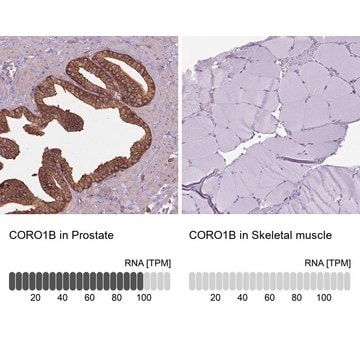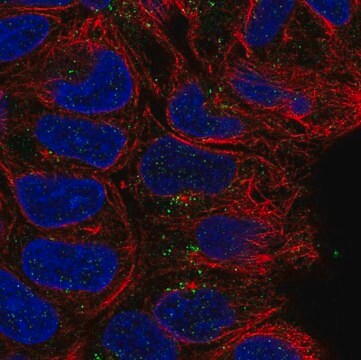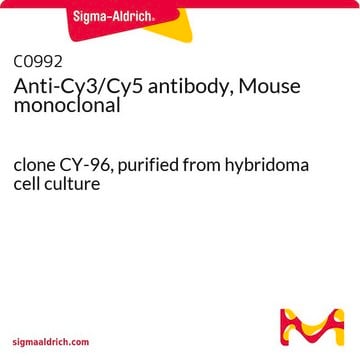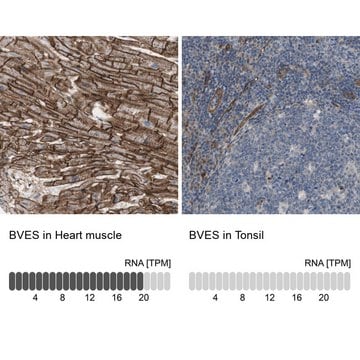SAB4200096
Anti-Coronin 1B antibody produced in rabbit
~1.5 mg/mL, affinity isolated antibody
Synonym(s):
Anti-CORO1B, Anti-Coronin-2
About This Item
WB
western blot: 1.5-3.0 μg/mL using PC12 cell extracts and mouse brain extracts (S1 fraction)
Recommended Products
biological source
rabbit
Quality Level
conjugate
unconjugated
antibody form
affinity isolated antibody
antibody product type
primary antibodies
clone
polyclonal
form
buffered aqueous solution
mol wt
antigen ~66 kDa
species reactivity
mouse, rat, human
packaging
antibody small pack of 25 μL
concentration
~1.5 mg/mL
technique(s)
indirect immunofluorescence: 5-10 μg/mL using HS68 cells
western blot: 1.5-3.0 μg/mL using PC12 cell extracts and mouse brain extracts (S1 fraction)
UniProt accession no.
shipped in
dry ice
storage temp.
−20°C
target post-translational modification
unmodified
Gene Information
human ... CORO1B(57175)
General description
Application
Biochem/physiol Actions
Physical form
Disclaimer
Not finding the right product?
Try our Product Selector Tool.
Storage Class Code
10 - Combustible liquids
Flash Point(F)
Not applicable
Flash Point(C)
Not applicable
Choose from one of the most recent versions:
Certificates of Analysis (COA)
Don't see the Right Version?
If you require a particular version, you can look up a specific certificate by the Lot or Batch number.
Already Own This Product?
Find documentation for the products that you have recently purchased in the Document Library.
Pathways Regulating Bone
Mineral Density in the Proteome
and RNA Interference Era
Our team of scientists has experience in all areas of research including Life Science, Material Science, Chemical Synthesis, Chromatography, Analytical and many others.
Contact Technical Service








